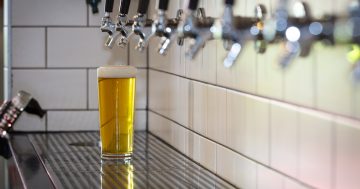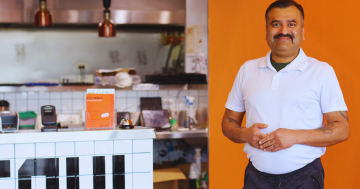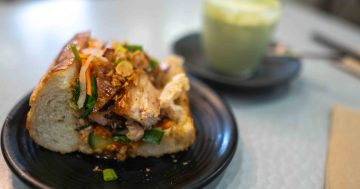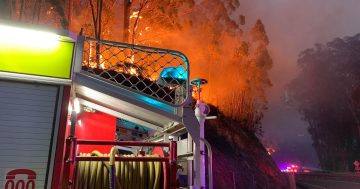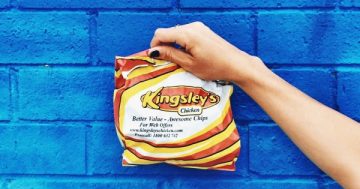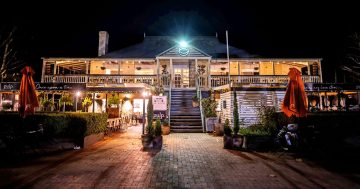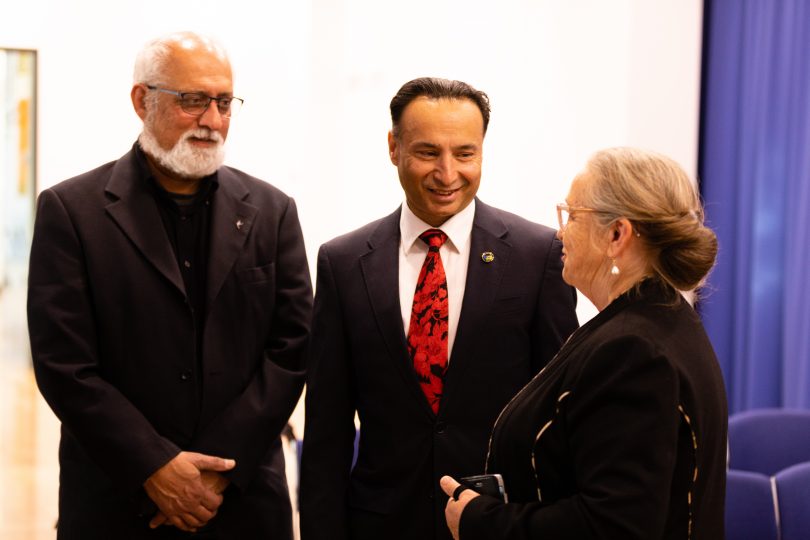
MLA for Yerrabi Deepak-Raj Gupta (centre). Photo: We Are Found.
Times of crisis have historically presented opportunities for significant social and economic reform. The time of this coronavirus pandemic is no different.
The COVID-19 crisis has made governments around the world dramatically change their policies. In Australia, it has reminded us just how dependent we have become on other countries. Gone are the days when globalisation was the watchword – the talk now is of a self-reliant economy.
The recent twin calamities of COVID-19 and the devastating bushfires which preceded the pandemic have brought to the forefront Australia’s vulnerabilities of being dependent on other countries for basic requirements such as critical medical supplies, ventilators, personal protective equipment, onshore fuel security and more.
Economists have identified several other areas where Australia needs to become more self-reliant, including energy security, high-end manufacturing, foreign affairs and trade, global supply chains, defence industry and policy areas.
But just how will this happen? How can we become a more self-reliant nation?
There is obviously a lot that the government can do, but there are also many things that we, as ordinary citizens, can think about. One thing that this pandemic has taught us is that there is no better time than now to support our wonderful local businesses.
During this lockdown, when we haven’t been able to go to regular chain stores and bigger brand shops, it’s our local businesses that have provided us with fantastic products and services. These are the people who have worked tirelessly to give us excellent service.
Consider a couple of examples: before the lockdown, I would often take my team to a great little place called La Empanada for lunch. During the lockdown, we’ve still been able to get quality coffee from there, and service with a smile.
Anyone who knows me personally knows that I love to cook. I’ve been going to Desi Bazaar for years for my Indian and Asian grocery supplies because I know that the owner sources Australian grown produce which is fresher, healthier and tastier than something that’s had to fly halfway across the world before it even gets to me.
So yes, coronavirus has taught us that Australia needs to be more self-reliant. But it has also taught me that I, as an Australian, should be supporting my local Aussie businesses as they always do a great job for me and if I support them, then in my own little way, I’m doing my bit to support the Australian economy becoming more resilient.
Put simply, self-reliance means using local factors of production to produce goods for local consumption. We might have to pay a little more for something that is made or produced locally but it is of more benefit to us in the long run than even, for example, buying online, as online products can be made overseas.
Personally, I am happy to pay a little bit more to support my local businesses here and ultimately help families local to me.
I also believe that in the ACT we are so well placed from a geographical perspective, being surrounded by lots of wonderful local producers, including those from regional New South Wales. Therefore, we should take pride in our own abilities and resources as Australians, and we should advocate for our locally made products.
COVID-19 has also highlighted to us that despite the fact that we live in such a globalised world, our fates are all still inextricably linked. So, we must turn this time of adversity into a time of opportunity. We must support one another locally which will make us stronger economically and at the same time allow us to remain more connected as communities and to check in with each other and look after one other.
We need to learn quickly, and on our feet. If we get this right, it could mean that in the future we need no longer be at the mercy of other countries at times of crisis.
We could emerge from this having learned valuable lessons, having looked after each other, and having evolved to become a more resilient nation, a self-sufficient economy.
Deepak-Raj Gupta is the Labor MLA for the electorate of Yerrabi in Gungahlin.
Original Article published by Deepak-Raj Gupta MLA on The RiotACT.




